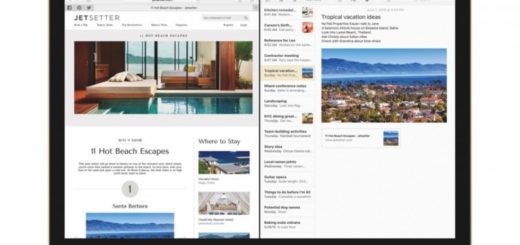Apple’s huge OS licensing opportunity
Apple may have a huge and hidden opportunity to drive proliferation across all its platforms by licensing some of its connected operating systems, though doing so goes against its usual way of doing business.
Beyond the core
If we define Apple’s core products as Macs, iPads and iPhones, then it makes little sense for the company to license its operating systems. Not only do they give its products a unique selling position, because they are better designed and work better than anything else, but these cash cows also contribute a great deal of revenue to the company coffers.
However, Apple is also developing its services income. That means its app stores, online services, Apple Music, messaging and a range of associated service-based solutions, each of which contribute a few more dollars to its bottom line.
We already know Apple is looking at expanding services provision into other platforms – Apple Music for Android is a good example of this, and has been installed 5-10 million times. Apple Music has 15 million subscribers, so there’s a good chance some of these are actually using Android.
And that’s the point. It shouldn’t really matter to Apple which platform people using some of its services happen to be on, just so long as they enjoy the user experience and are willing to pay for it. Once Apple brings one of these non-Apple device users into the fold, it just has to give them what they want and treat them properly and the customer journey will have begun. That journey means Apple claimed more Android users than ever before switched to iPhone in its just gone quarter. In other words, offering services to customers across multiple platforms is a gateway to selling its core products to those customers in future. The recurring income also helps.
Why stop there?
Apple CEO, Tim Cook, has told us the company built Apple Music for Android as a way to find out more about the opposing platform. A feasibility study in service provision – and why not – get people hooked on the services and the iPhone, iPad and Mac sales will soon follow. As in future will Apple Watch and Apple TV. Each of which have their own OS, watchOS and tvOS. Why shouldn’t Apple license those non-core operating systems?
Think about it. Apple could very quickly populate the planet with televisions, home entertainment systems and wearables in a huge host of designs. The only missing link to those non-core operating systems would be enabling compatibility with non-Apple platforms. Sure, the user experience on those platforms would have to be great, but the company could still ensure it was even better when used with its own core products.
The benefits to doing so: it would gain sales, addict more non-core platform users to its services, and, step-by-step, gain a chance to woo customers across to iPad, iPhone and Mac. Not only this, but the relatively stripped down nature of the software driving at least one of these families (tvOS) would limit the company’s exposure to quality problems supporting multiple classes of product.
It would be able to make a decent licensing income putting Apple TV inside every television available on the market. It would be able to wrap itself around every wrist, and it could save the Swiss watch industry as it did…
And each time it sold one of those things, it would begin a new customer relationship. The history of the iPod shows us how good it can be at keeping customers hooked once they reach it. Those iPod sales set the scene for Mac marketshare growth, iPhone and iPad.
It won’t happen
Everyone knows Apple likes to own the whole widget, and we all know that when it licensed its platform (it only had one at that time) in the past things went very, very wrong. That’s enough that most people will confidently predict Apple will never do anything as radical as introducing Android support for Apple Watch or Windows compatibility to Apple TV. Merely because success offering these products to users on different platforms would widen its customer base for services, make money and attract new customers will surely not be sufficient temptation for it to change its ways. Will it?





Jonny, I do understand that there are opportunities for Apple to license some of its “lesser” operating systems. But I think, based on the company’s past bad experiences licensing Mac OS, that the licensing would need to be limited in some ways and also under Apple’s control.
For example, I don’t think that Apple would ever license watchOS to watch manufacturers, without some limits and control.
When Apple licensed Mac OS to other computer manufacturers 20 years ago, it almost brought Apple to bankruptcy. The reason was that the licensees produced cheaper hardware than Apple, so Apple lost sales of its Mac computers (which was its primary source of income). In addition, because the computers were cheaply made and problematic, this also reflected poorly on Apple, and so people lost faith in Apple in general.
If Apple ever decided to license watchOS to watch manufacturers, Apple would need to limit the license to ONLY specific high end models that don’t compete with Apple products, and Apple would need to take charge of testing watchOS on those specific models BEFORE those products are released, so that user experience and reliability are under Apple’s control.
I don’t think that watchOS and tvOS will ever be open-ended licensed to other companies, and I certainly don’t believe that macOS or iOS (Apple’s jewels) will EVER be licensed to other companies in ANY possible way.
Yeah I’ve thought about that — I made a mention in a carOS article the other day — basically Apple licenses the chip as part of the deal — so you need to pay to use an A-series chip, and (I guess) there would be some form of quality control. So that’s yet another income that I see there.
Of course, just because things could happen doesn’t mean they will.
PPS: I totally agree re: core OS. It is possible this makes the most sense for tvOS. All those set top boxes. All those cable boxes. All those Movie sales…
That would be a good business opportunity for Apple.
After all, companies that make HDTVs (including Samsung 😉) are not directly competing with Apple products.
However, every TV manufacturer has their own custom software and interface for the operation and settings on their TVs. So if Apple did license tvOS to HDTV manufacturers, tvOS would need to run as an “app” within every manufacturer’s software interface.
You could not make tvOS the frontmost or only software in the TV, because it doesn’t contain the hardware settings for each of the hundreds of TV models, nor can you change channels on the actual TVs using tvOS. It would be a logistical nightmare for Apple to try to do this for every TV model, including working with the TV manufacturers to allow this in the first place. And trying to manage updates for Apple TV PLUS for every TV model that tvOS would run on, would be almost impossible to do.
The only way that having tvOS on other companies’ TVs would be:
a) to run tvOS as a self-contained “app” on the TV, being exactly the same software that runs on Apple TV, and
b) having the tvOS “app” run on an A-series processor in the TV, which would be in addition to the other types of processors that each of the TV manufacturers use for running their own software.
Apple would not rewrite tvOS to run on the many other uncertified processors found in TVs. Not only would it be too expensive and time consuming to try to write and test the operating system and tvOS apps constantly, but also that the other types of processors that are used by TV manufacturers may not be capable of actually running tvOS and its apps.
Another concern is that although most TV now have Wi-Fi and Bluetooth built-in (necessary for tvOS), they DON’T come with any appreciable amount of storage. So TV manufacturers would also need to build a minimum of 32GB of fast storage into their TVs for use by tvOS only (not shared).
The storage would need to be internal and encrypted by tvOS and the A-series processor. It would not be feasible to use one of the TV’s USB connectors for external storage due to security concerns.
Thant is a long list of requirements, and between the additional hardware (A-series processor and 32GB of storage) and the licensing fees for tvOS, it would add significantly to the price of the TV, which would eat into the manufacturers’ sales and profits.
Based on this, although it is doable, I think that it is very unlikely that we will ever see a TV with an “Apple TV” built into it.
I am aware that there are a few TV models that have Android TV or Roku TV built in.
Both Android TV and Roku TV have lower requirements for storage, and they are also less concerned with the need for privacy and encryption than Apple is with the Apple TV.
Even still, adding Android TV or Roku TV to a TV does increase the over all price of the TV model.
Some people see the extra cost worthwhile for the convenience of having a “TV box” built into a new TV, but that “convenience” only goes so far.
Because we may spend one or two thousand dollars on a high end TV with Android TV or Roku TV built in, we tend to keep that hardware for a long time. We don’t buy a new TV every year or two.
With a “TV box” built in, we are stuck with that extra hardware for a long time. Since it is internal, the hardware is not upgradeable.
There was only 3 years between Apple TV 3 (which is not capable of running tvOS or its apps) and the release of Apple TV 4. Would anyone be happy about wanting to buy a new expensive TV in 2 or 3 years because the new TVs have Apple TV 5 built in, which can do a lot more (hypothetically) than Apple TV 4?
The benefit of having the small external Apple TV is that it is not a major cost to buy that Apple TV 5 as soon as it comes out, while keeping your expensive TV.
The other benefit is that if you go on vacation, or to a friend’s place, it is easy to take your Apple TV with you to connect to someone else’s TV… Not so easy though to lug your 75″ TV with Apple TV built in.
Why would Apple license the WatchOS?
Currently, Apple makes a profit of about $150 per Apple Watch Sold.
If competitors license the WatchOS for $5, then they would have to sell 30 Apple Watch Clones for every Apple Watch sold for Apple to make the same profit from the sale of one genuine Apple Watch.
To sell their clones, competitors would have to undercut Apple Watch’s price.
This would lead to the loss of an Apple Watch sales.
Then for every 30 Apple Watch clones that are sold, Apple loses 30 Apple Watch sales.
At a licensing fee of $5, the sale of 30 Apple Watch Clones generates $150 of profit for Apple.
But it also leads to the loss of 30 Apple Watches or the LOSS of $4,500 in profit for Apple.
So the sale of 30 Apple Watch Clones leads to a net LOSS of $4,350 in profit for Apple.
The sale of genuine 30 Apple Watches gives a net PROFIT $4500 to Apple.
So why again would Apple want to license the WatchOS?
The only rational MINIMUM price for WatchOS is $150 per clone to maintain Apple’s current profits. But that would be a break even price. To give Apple incentive to license the Watch OS, the BETTER price should be $200 or more per clone.
Additionally, each new version of WatchOS needs to have an upgrade price for clone makers. It would not be provided for free.
So why would clone makers want to pay $200+ per clone for WatchOS when they can get Android for free?